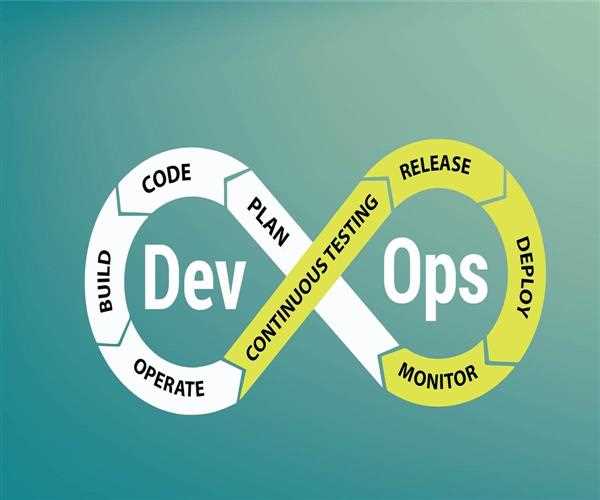Implementing agile practices is fundamental to all businesses out there. While many choose to ignore it, there are others who ace it and carve a distinctive niche for themselves in the market. Believe it or not, agile methodologies can be the difference between a successful business and an indistinguishable one.
DevOps is a name one cannot go without hearing when it comes to implementing agile practices in an organization. Consider it as a handshake between the development and operations in your organization, ultimately contributing to much better collaboration, tighter integration along with a shift in the mindset. By automating the process between software development and IT, DevOps ensures faster delivery of the software along with reliability in the product. In other words, it unifies automation, agile, continuous delivery, workforce along with much more components. This ultimately helps the development and operations team to be more efficient, innovate faster and deliver higher value to customers and businesses.
As an organization, if you’re still not utilizing DevOps, you’re probably losing out on a large number of benefits. Unifying the development and operations part of your organization through
DevOps consulting services guarantees solutions to critical issues more rapidly, increased trust, faster software releases, better management of unplanned work and last but not least a much higher value and to businesses and customers.
Maturing DevOps
DevOps is all about constant improvement in an organization. It is, however, no longer the new and shiny component in the field of information and technology that not many people know about. Instead, when we talk about the ways it will shape businesses in the coming years, DevOps appears as a milestone term.
While the rate of DevOps adoption strikingly increased from 10 to 17 percent between the years 2017 and 2018, it followed a more intense growth in 2019. Moreover, as the years pass by, the world is witnessing DevOps mature and being adopted at all levels by organizations across the world.
Tom Iverson, Managing Principal, Cloud, and DevOps at RBA Consulting point out that the levels where DevOps is being adopted in various organizations do not exactly refer to organizational hierarchies such as executive, managerial, leadership, etc. Instead, every team has a starting point with DevOps that was unique and a bit different. But, in spite of this, we are watching the adoption rate rise significantly.
As the future unfolds, more advanced DevOps teams will be innovating and optimizing their continuous delivery process. While those organizations that still lower down in the adoption curve might be the ones who are still experimenting in the earlier stages of their software pipeline. But, regardless of the DevOps adoption stage that you are as an organization, there are trends in the future that you must look forward to, and
embrace for more rapid development and deployment of your products.
More Cloud-Centric Tools
As we move into 2020, DevOps will not just mature in age but also drive the adoption of cloud-centric technologies. For example, in 2020 experts see the adoption of Kubernetes increase strikingly, for the deployment of services in an organization. It’s ease of use, depth of features along with integration with the major cloud platforms will make it an increasingly appealing choice, right from development to deployment in an organization. The point is that cloud technologies will continue to grow and as a result will instill a DevOps adoption mindset among organizations. This means that the large scale government-backed model will adopt a more custodian approach. And this will be all because of the amount of flexible space available in the cloud. Moreover, IT will work towards providing self-service provisions to back the rapid allocation of temporary resources for the future of concept work.
DevOps Success Metrics
The DevOps culture has seen quite some of the ongoing measurements for a while. This paved the way for some common metrics like the mean time to deploy for quantifying your progress. And if you think about it, it sounds more natural than ever. After all, when an organization claims that they could speed up their deployment both concerning time and frequency, they need to have metrics that stand up for the fact.
In 2020, we can expect such traditional DevOps metrics to be joined by some subjective measurements that lie outside the business value. It does make sense because faster is not always better when it comes to software release cycles. Therefore, in the coming year, we will find an organization drifting away from deployment speed to emphasizing business value and customer satisfaction.
DevOps and Security
2020 will definitely see a much tighter bind between the DevOps and the
security of an organization. They’ve stayed as two intertwined topics for so long because many experts and enterprise leaders believed that security was an element lacking from the equation of DevOps. Even though security teams bolted at the end of the pipeline, it still left a lot of gaps for attackers to penetrate into the system. So, the talks of integrating security into the DevOps came into the picture, but nothing concrete was done. In 2020, we can expect DevSecOps to be the front and center and confront the security considerations of faster and more frequent deployments.
Alternatively, you can choose to call it whatever you want, but the fact is that as DevOps matures, there will be an increased awareness of the impending security issues that attend modern approaches to software and infrastructure.
Conclusion
As DevOps matures in the coming time, organizations will work in a far more integrated environment between different processes than ever before. This will be different than before since it will not just cover faster and frequent deployment but also other aspects of a business such as security. A DevOps holistic view is on the cards, where executives, developers, testers, and leaders of an organization will share responsibilities and be equally part of every process. This will create a shared understanding, clarifying priorities and contribute towards better technology.




Leave Comment